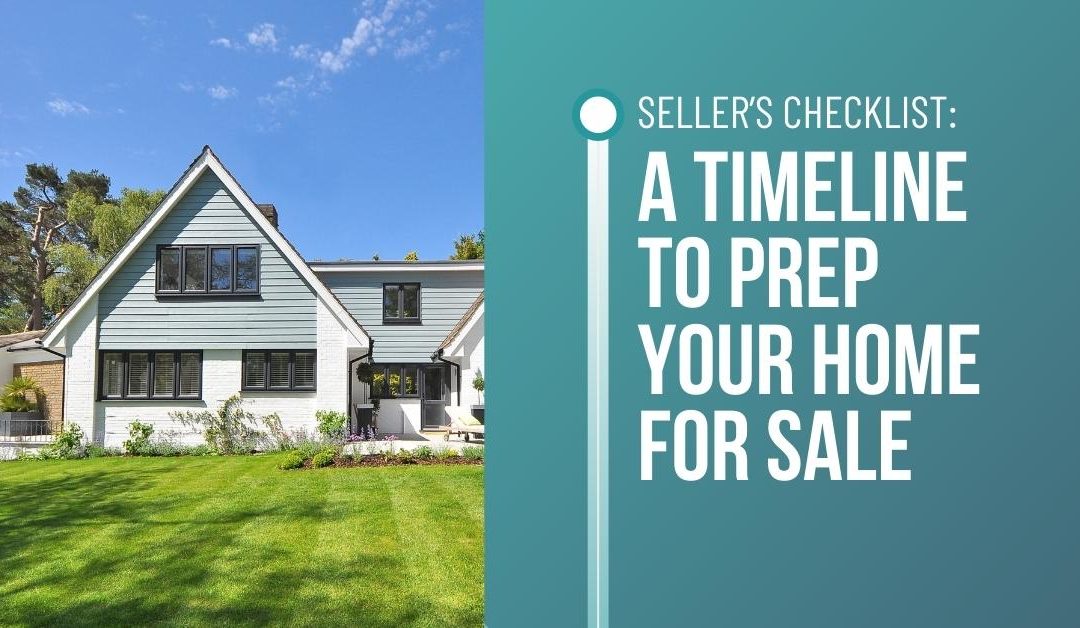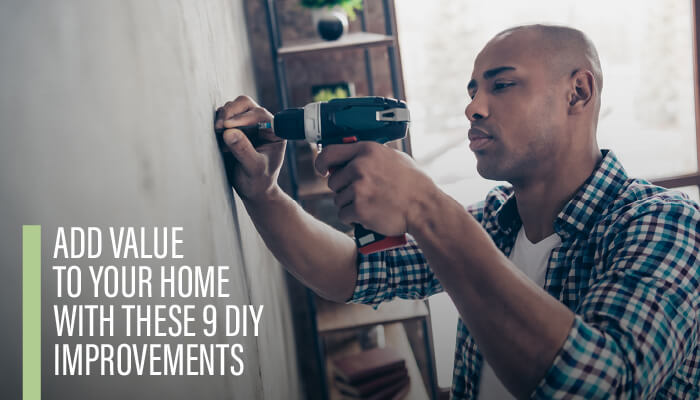Last year, one factor drove the real...

Seller’s Checklist: A Timeline to Prep Your Home for Sale
Seller’s Checklist: A Timeline to Prep Your Home for Sale
Even a strong seller’s market doesn’t mean your home is guaranteed to easily sell. If you want to maximize your sale price, it’s still important to prepare your home before putting it on the market.
Start by connecting with a real estate agent as soon as possible. Having the eyes and ears of an insightful real estate professional on your side can help you boost your home’s appeal to buyers. What’s more, beginning the preparation process early allows you to tackle repairs and upgrades that can increase your property’s value.
Use this checklist to figure out what other tasks you should complete in the months leading up to listing your home. While everyone’s situation is unique, these guidelines will help you make sure you’re ready to sell when the time is right. Of course, you can always call us if you’re not sure where to start or what to tackle first. We can help customize a plan that works for you.
AS SOON AS YOU THINK OF SELLING
Whether you have months or weeks to plan your move, these first steps will help you get ahead.
- Contact Your Real Estate Agent: We go the extra mile when it comes to servicing our clients, and that includes a series of complimentary, pre-listing consultations to help you prepare your home for the market.
- Address Major Issues and Upgrades: Give yourself ample time to address any significant structural, systems, or cosmetic issues that could limit your home’s sales potential. We can guide you on the renovations that are worth your time and investment.
1 MONTH (OR MORE) BEFORE YOU LIST
Turn your attention to the minor updates that play a major role in how buyers perceive your home.
- Make Minor Repairs: Tackle the ones you can and be sure to call a professional for any repairs you’re not comfortable doing yourself. We can refer you to local service providers who can help.
- Refresh Your Design: A recent survey found that staged homes often sell faster and for more than their list price.[1] We can connect you with a local stager or offer our suggestions if you prefer the DIY route.
- Declutter and Depersonalize: Start by donating or discarding possessions you no longer want or need. Then pack up any seasonal items, family photos, and personal collections you can live without for the next few weeks. Bonus: This will give you a head start on packing for your move!
1 WEEK BEFORE YOU GO TO MARKET
Now it’s time to focus on the small details that will really make your home shine.
- Check-In With Your Agent: We’ll connect again to make sure we’re aligned on the listing price, marketing plan, and any remaining prep.
- Tidy Your Exterior: Make sure your lawn is freshly mowed, hedges are trimmed, and flower beds are weeded. If you haven’t already, empty gutters and wash siding and windows.
- Deep Clean Your Interior: Your house should be deep cleaned before hitting the market, including steam cleaning for all carpets. Also take some time to tidy up the inside of closets, pantries, and cabinets.
DAY OF SHOWING
Take care of these finishing touches to give buyers the best possible impression.
- Pre-Showing Prep: Tidy up by vacuuming and sweeping floors, emptying trash cans, and wiping down countertops. Open blinds to let in as much light as possible. Don’t forget to secure firearms, prescription medications, and items of value in a safe or off-site. Finally, it’s best to have pets out of the house during showings.
DON’T WAIT TO PREP YOUR HOME FOR SELLING
If you want to get top dollar for your home, don’t put it on the market before it’s ready. The right preparation can make all the difference when it comes to maximizing the offers you get. Call our team if you’re thinking about selling your home, even if you’re not sure when. It’s never too early to seek the guidance of your real estate agent and start preparing your home to sell.
Source:
2023 Canada Real Estate Market Outlook
8 Strategies to Secure a Lower Mortgage Rate
Interest rates have risen rapidly this...
5 Ways to Write a Winning Offer in Today’s Real Estate Market
Our nation is in the midst of a shifting real estate market. But even as the buying frenzy begins to slow, many properties are still receiving multiple offers…
Seller’s Checklist: A Timeline to Prep Your Home for Sale
If you’re looking to sell in the near future, now is the time to consider how you can stand out.
8 Popular Home Design Features for 2022
If you’re looking to sell in the near future, now is the time to consider how you can stand out.
Could Rising Home Prices Impact Your Net Worth?
A good portion of every family’s wealth comes from the equity in the home they live in. As the value of their home (an asset) increases so does their equity.
New Year, New Home? Set Homeownership Goals Whether You’re Buying, Selling, or Staying Put
Losing weight, saving money, breaking bad habits… At the start of each new year…
Move-Up vs. Second Home: Which One Is Right For You?
The pandemic has changed the way many of us live, work, and attend school—
Lowest Mortgage Rates in History: What It Means for Homeowners and Buyers?
Mortgage rates have hit an all time low! Find out how you can secure the best available rate for a renewal, refinance, or home purchases in my latest article.
Add Value To Your Home With These 9 DIY Improvements
Looking for ways to maximize your home’s sales appreciation potential? Here”s 9 simple do-it-yourself upgrades that add function, beauty, and real value to your home.















